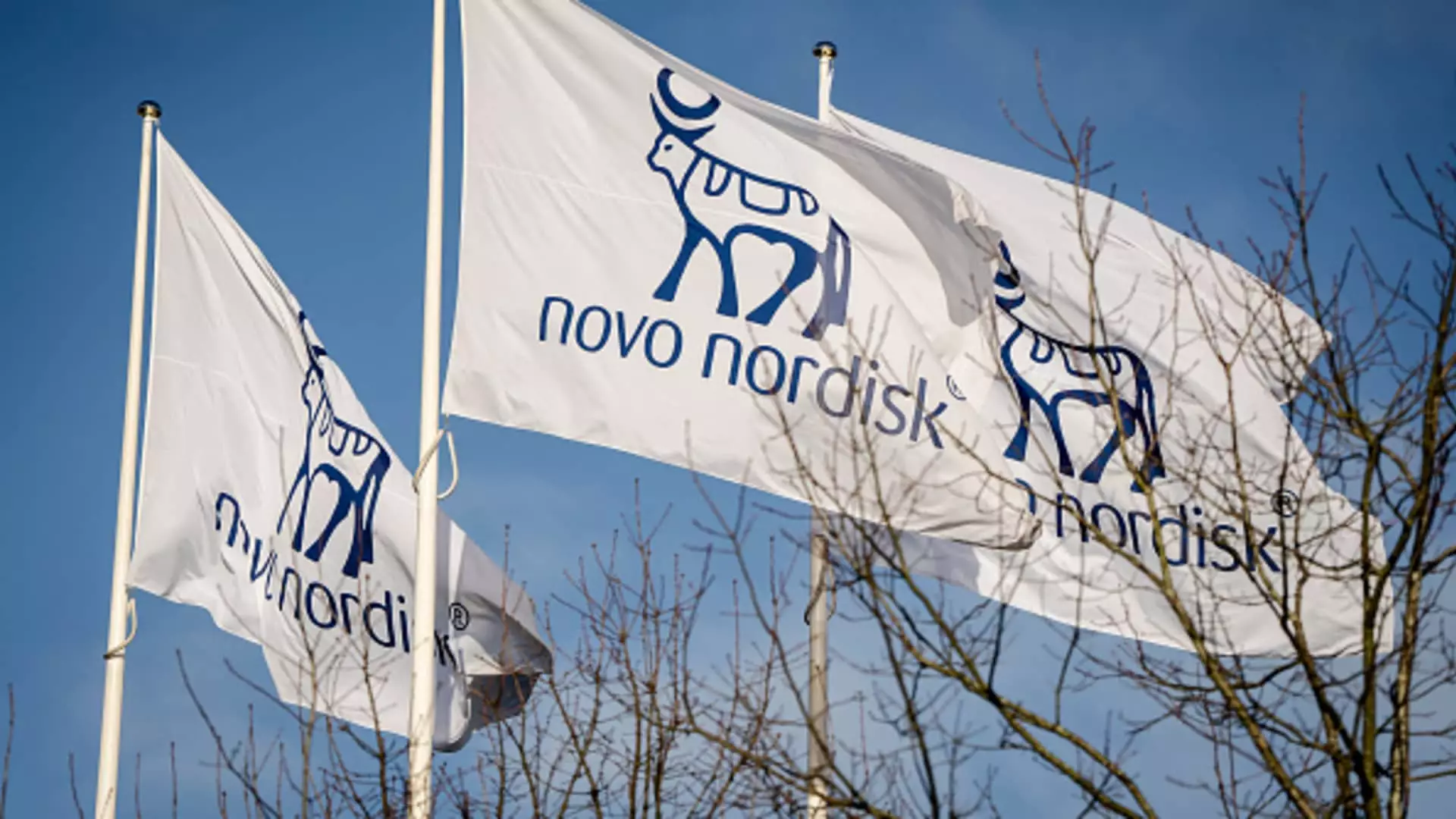Novo Nordisk has opened doors to a groundbreaking treatment alternative for diabetes patients with the recent late-stage findings of Rybelsus. This oral medication has demonstrated a remarkable ability to diminish the risks associated with cardiovascular incidents, which is a pressing concern for many individuals living with diabetes. The company revealed that Rybelsus, over an average monitoring period of four years, effectively lowered the risk of cardiovascular-related death, heart attack, and stroke by 14%, compared to a placebo. This pronounced benefit emphasizes the evolution of diabetes care from mere glycemic control to multi-faceted health management.
The announcement at the American College of Cardiology’s Annual Scientific Session in Chicago signals a pivotal moment for patients and clinicians alike. As diabetes and heart diseases often intersect, the need for integrative solutions has never been more critical. This is particularly pertinent in a world where lifestyle-related health issues are on the rise. Patients often find themselves caught in a web of medication regimens that may not address all their health concerns simultaneously. Rybelsus emerges as a potential game-changer by offering hope that patients can manage their diabetes while simultaneously mitigating cardiovascular risks.
A Patient-Centric Approach to Care
Stephen Gough, Novo Nordisk’s global chief medical officer, explained in a recent interview how Rybelsus broadens treatment options for patients who may shy away from injections. For many, the mere thought of needles provokes anxiety, creating a barrier to treatment adherence. Rybelsus provides a once-daily oral alternative, making it more accessible and manageable for a demographic that might be resistant to traditional injectable glucose-lowering drugs.
This shift is essential for the healthcare system as it acknowledges the psychological barriers some patients face when beginning a treatment regimen. It underscores a growing awareness that medical interventions must consider patient comfort and preferences. When patients feel empowered to choose, compliance increases, which ultimately drives better health outcomes. This aligns with a center-right liberal perspective that champions personal choice and responsibility in healthcare, advocating for diverse treatment pathways that can better serve the populace.
Moreover, with Rybelsus positioned alongside other medications containing the active ingredient semaglutide, such as the weekly injection Ozempic and the weight-loss drug Wegovy, we witness an important trend where pharmaceutical companies are aiming for holistic patient treatment rather than piecemeal solutions.
Examining the Clinical Data
In the trial involving over 9,600 patients aged 50 and older, the findings predominantly highlight a critical issue: cardiovascular risk reduction. The reported reductions in major health incidents — 26% for non-fatal heart attacks and 12% for non-fatal strokes — should not be underestimated. These figures illuminate the importance of cardiovascular health in the overall wellbeing of diabetic patients, prompting the medical community to rethink how they approach diabetes treatment strategies.
However, it’s crucial to approach these promising results with a critical eye. While the study showed consistency across various demographics, one must consider the lack of significant differences in kidney function outcomes between the Rybelsus and placebo groups. This highlights that, although Rybelsus shows cardiovascular promise, it doesn’t uniformly outperform other treatments for all associated complications. The nuanced advantages of the Rybelsus must be evaluated alongside its limitations, keeping patients’ holistic well-being in focus.
While gastrointestinal issues like nausea are commonly reported side effects, they rarely led to discontinuation of the drug, a testament to its tolerability. This could potentially reinforce the philosophical argument that even those with chronic conditions must take an active role in managing their health, weighing the risks and benefits of every treatment option.
Future Implications for Diabetes Management
With its application for expanded approval in both the U.S. and EU to include serious cardiovascular risk mitigations under evaluation, Rybelsus stands at the brink of redefining diabetes treatment. As Novo Nordisk continues to innovate within the GLP-1 receptor agonist space, it sets a precedent for competition among pharmaceutical giants like Eli Lilly, all racing to develop oral alternatives that could substantially shift diabetes management paradigms.
These ongoing developments not only challenge the status quo but also encourage patients to demand more from their healthcare providers. As we progress, it will be fascinating to observe how resistance among patients to more invasive treatments may inform future innovations in delivering medication and improving health outcomes.
The promise of Rybelsus is not merely in its clinical results but also in its potential to reshape the landscape of diabetes treatment. It emphasizes the importance of patient-centered care and the ongoing commitment to mitigate the risks that accompany chronic diseases—creating a healthier future for those affected by diabetes and heart disease alike.

